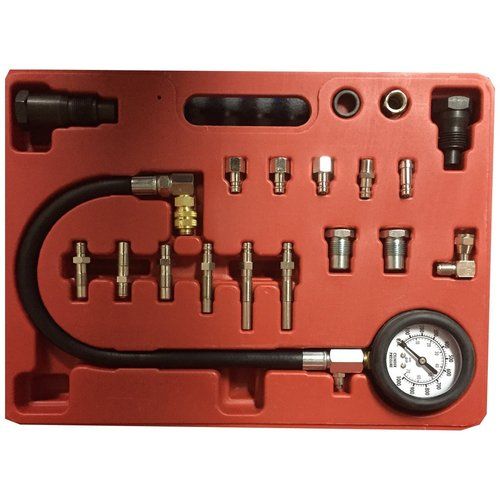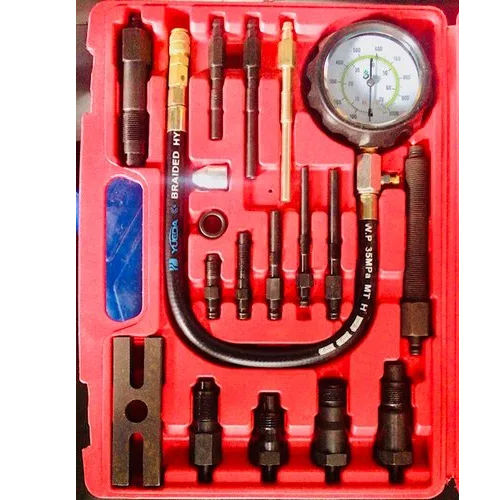Call : 08045475210
DIESEL COMPRESSION TESTER
3250 INR
Product Details:
- Product Type DIESEL COMPRESSION TESTER
- Lift Design Four Post Lift
- Lifting Height 254 - 1270 Millimeter (mm)
- Width 5-10 Millimeter (mm)
- Working Voltage 110-440 Volt
- Click to View more
X
DIESEL COMPRESSION TESTER Price And Quantity
- 1 Set
- 3250 INR
DIESEL COMPRESSION TESTER Product Specifications
- 5-10 Millimeter (mm)
- 254 - 1270 Millimeter (mm)
- Four Post Lift
- DIESEL COMPRESSION TESTER
- 110-440 Volt
DIESEL COMPRESSION TESTER Trade Information
- 1 Set Per Day
- 1 Week
- All India
Product Description
A diesel compression tester is a specialized tool designed to measure the compression pressure in diesel engines. It is used by mechanics, technicians, and diesel engine enthusiasts to assess the health and performance of the engine's cylinders. The tester typically consists of a pressure gauge, a fitting or adapter specific to diesel engines, and a hose for connecting to the glow plug or injector port of the cylinder. By measuring the compression pressure, the tester helps diagnose cylinder-related issues, such as worn piston rings, valve sealing problems, or head gasket failures. Diesel compression testing is an essential diagnostic procedure to ensure optimal engine performance and identify potential engine problems.
FAQs:
Q: Why do I need a diesel compression tester?
A: A diesel compression tester is necessary to measure the compression pressure in diesel engines and diagnose cylinder-related issues. It helps identify problems such as worn piston rings, valve sealing issues, or head gasket failures that can affect engine performance and reliability.
Q: How does a diesel compression tester work?
A: The diesel compression tester is connected to the glow plug or injector port of the diesel engine's cylinder. Once properly connected, the tester measures the compression pressure generated during the combustion process. The pressure is displayed on the gauge, allowing you to assess the condition of the cylinder and detect any abnormalities.
Q: What can a diesel compression tester diagnose?
A: A diesel compression tester can diagnose various cylinder-related issues in diesel engines. It can identify problems such as low compression, uneven compression between cylinders, or excessive leakage. These issues can indicate worn piston rings, valve sealing problems, cylinder head issues, or other engine problems that require attention.
Q: How often should I perform diesel compression testing?
A: The frequency of diesel compression testing depends on several factors, including the engine's age, mileage, and overall condition. As a general guideline, it is recommended to perform compression testing during routine engine maintenance or when you suspect cylinder-related issues. It is also a good practice to perform testing before purchasing a used diesel vehicle to ensure its engine's health.
Enter Buying Requirement Details
Other Products in 'Garage Tools' category
 |
SAHNEY TOOLS
All Rights Reserved.(Terms of Use) Developed and Managed by Infocom Network Private Limited. |

 Send Inquiry
Send Inquiry



